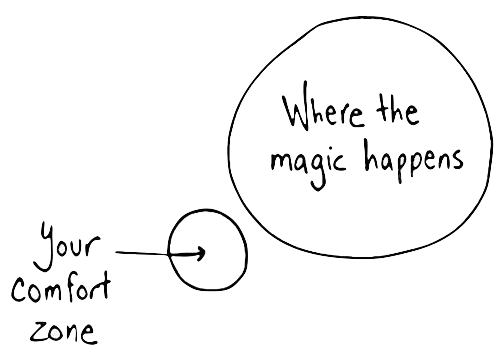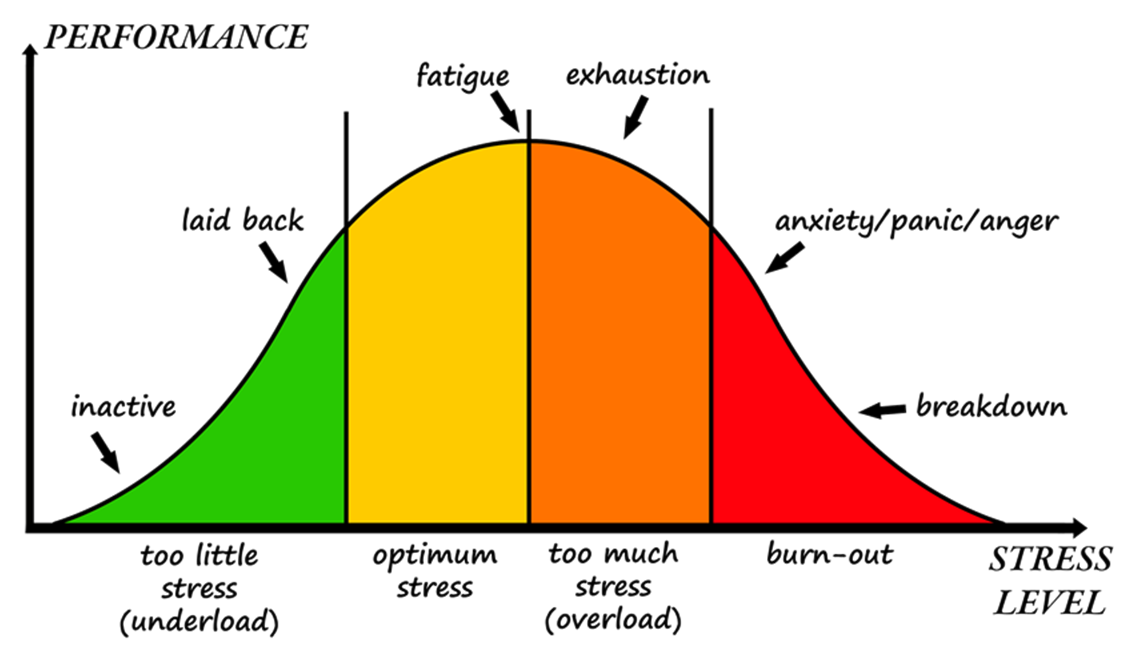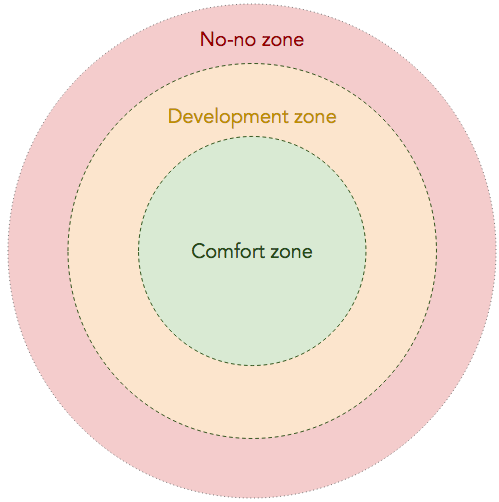The “comfort zone” is a situation where you function with ease and familiarity, and over which you have control. The more I read and write about personal development, the more I understand how wrong our approach to that concept is.

When you stop for a minute and really think about this, you realise it fuels the sense of failure and guilt when you feel comfortable.
Why it’s very wrong
“Great things happen outside your comfort zone” implies negative things like:
- Comfort is boring
- Great things happen far from where you are
- It’s not really a great thing if you’re doing it within your comfort zone
- How do you know when you’re in or out? Do you have to feel stressed or uneasy to experience it?
- Your comfort zone always stays the same
- You don’t know what you don’t know, so how can you jump from your comfort zone to where the magic happens, and land somewhere you’d be interested in?
Can’t really call that a pep talk, can we?
How to change your approach
Instead of pushing yourself to uncharted territory for the sake of doing it, start seeing your comfort zone as a flexible and expandable area. In a way, it is very similar to the Circle of Influence and Circle of Concern I already wrote about. Instead of talking about control, we focus here on the feeling of safety.
It starts with self-awareness. It always does. Begin a self-reflective journey by tracking your emotions and thoughts, your values, what drives you in life and what’s important to you.
Also develop your mindfulness to track your stress levels at any given time. Too much comfort is not productive, but too much stress isn’t either. To illustrate this, psychologists Robert Yerkes and John Dillingham Dodson developed the Yerkes–Dodson law in 1908. It looks at the relationship between arousal (the state of being awaken) and performance (the now infamously known “great things”).

The law dictates that performance increases with stress and stimulation only to a certain point, after which performance starts decreasing and can lead to unhealthy situations.
If we apply this law to the comfort zone, it confirms that some stress is needed to achieve great things, but not too much. That means your comfort zone can grow bigger to cover more areas of your life that you didn’t feel fully comfortable with before. It also means that these “great things” are a lot closer to you than you think. But challenging yourself to the extreme opposite and doing something that isn’t you won’t be productive. It will very likely confirm what you didn’t know: that this wasn’t for you.
Expanding the limits of your comfort
I find that the best way to grow your comfort zone is to think about what you want to achieve rather than what you should achieve. Some of the questions below can help you figure it out:
- What would you do if you could do anything?
- What did you like to do when you were 10?
- What do you like doing now and why?
- What is the legacy you want to leave behind you?
- What are you afraid of?
- What is holding you back?
If it helps, you can even draw your comfort zone in three circles and name them as you want:

You’ll be able to identify what you are already at ease with but also where you want to stretch yourself. This is a great starting point to develop your potential and learn new things.
Always remember that you are in control no matter what, and that

